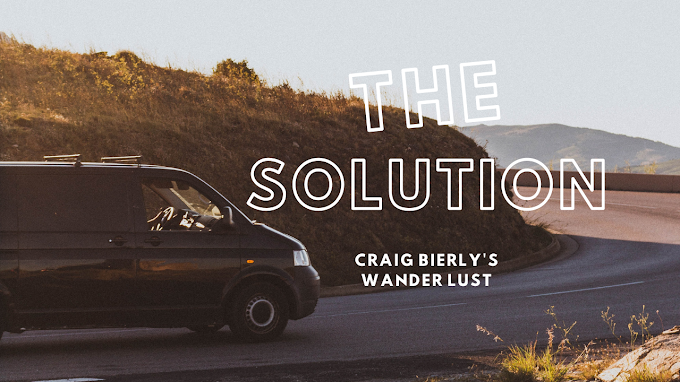How Social Media Is Affecting Our Mind
Social media, which started out as a passing fancy,
today is transforming the manner in which we interact and share. It's frankly
hard to escape it. Today, we're on social networking sites like Facebook and Instagram
all the time.
This has had an effect on our ability to process
information. Brain imaging studies show that while we scroll through Instagram posts
and tweet about what we're doing, the brain becomes less perceptive to
environmental stimuli - it even generates physical changes in its activity.
When two people are texting each other, less brainpower is used for processing
conversational tones from facial expressions, tone of voice etc.
We have been changing our interaction with social
media from one where we peruse the content but stay apace with external events
to a situation where we feel a compulsive need to 'check in' all the time
How Social Media Is Affecting Our Mind
It's an interesting trend, especially when we
think about the idea of information overload. The problem is that we're being
given more information, but we're becoming less capable of processing it all.
In other words, we're living in a
hyper-stimulated environment. We're flooded with information that we're not
really able to process and we have become passive receivers of this
information. We have to learn to become active consumers and producers of this information.
But, how do we do this? We have to be aware of
how much information we're getting and how much time we're spending absorbing
this information. We have to make conscious choices about how we use this
information.
How to Use
Social Media Consciously
It's a difficult thing to get used to. In fact,
it's downright frightening at first.
But the good news is that, like anything, if we
practice, we'll get better. There are things we can do to help us become more
mindful of the social media that we're using.
Distract Yourself From the Distraction
People aren’t usually motivated to change their
social media use by simply hearing it’s bad for them. It’s better for
individuals to see what their limits are. It’s probably unrealistic for most
social media users to quit completely. However, they can monitor their behavior
to see how their use impacts them, and how to act as a result.
For example,Michelle knows this all too well.
When she was initially treated for anxiety, her therapist asked her if she was
active on social media, and she said yes. “It turns out that a lot of my
anxiety and impostor syndrome is made worse when I’m online.” A person
experiences impostor syndrome when feeling chronic self-doubt and a sense of
being exposed as ‘a fraud’ in terms of success and intellect. “Whether it’s
another pretty vacation or someone’s bouquet of flowers, my mind went from ‘Why
not me?’ to ‘I don’t deserve those things, and I don’t know why,’ and it made
me feel awful.”
She and her therapist decided to set ground
rules. “If I was to continue using social media, I had to learn what would
trigger my anxiety and how using different platforms made me feel,” says
Michelle. The result was her deleting Snapchat for good, and after 5 years, she
still doesn’t miss it. She’s still active on several other platforms, though.
So put in the points, we can say,
1. Become aware of your own triggers. What is it
about social media that makes you feel anxious or depressed? Try to notice when
you start to feel negative and how you feel when you are exposed to the digital
world. If you know what is causing you to feel down, you can change your
habits.
2. Be selective. It’s okay to filter. You don’t
have to be online at all times. When you do use social media, be selective
about what you share. Look at your posts. Are you sharing a picture of a group
of friends and then immediately writing a post about how you’re sad about a
breakup? Are you posting pictures of yourself or your friends that make you
feel bad about yourself? Instead of posting about a relationship that ended
badly, share about a trip you had that went well.
The study’s researchers looked at 143
undergraduates randomly assigned to two groups. The first set was asked to
limit Facebook, Instagram, and Snapchat to ten minutes per platform per day,
while the second was asked to continue to use their social media as usual for
three weeks. The limited group showed significant reductions in loneliness and
depression during those three weeks over the group that continued using social
media.
A 2018 University of Pennsylvania study suggests
that such self-monitoring can change one’s perception of social media.
Sperling encourages people to conduct their own behaviour
experiments by rating their emotions on a scale of 0-10, with 10 being the most
intensely one could experience an emotion, before and after using social media
sites at the same time each day for a week. If one notices that one feels less
happy after using them, then one might consider changing how one uses social
media sites, such as using them for less time and doing other activities that
one enjoys instead.
Conclusion
When it comes to social media, you can’t escape
it. It’s unavoidable. However, you can manage your time on it to make sure
you’re not spending too much time on it. When you start seeing a negative
impact, it’s time to make changes. If you follow the above mentioned measures
and the conclusions of the studies, you can definitely beat your habit of
scrolling social media and especially you are scrolling it mindlessly it can be
have serious impacts.
Thank you For Reading









0 Comments
If you have any doubts, please let me know.